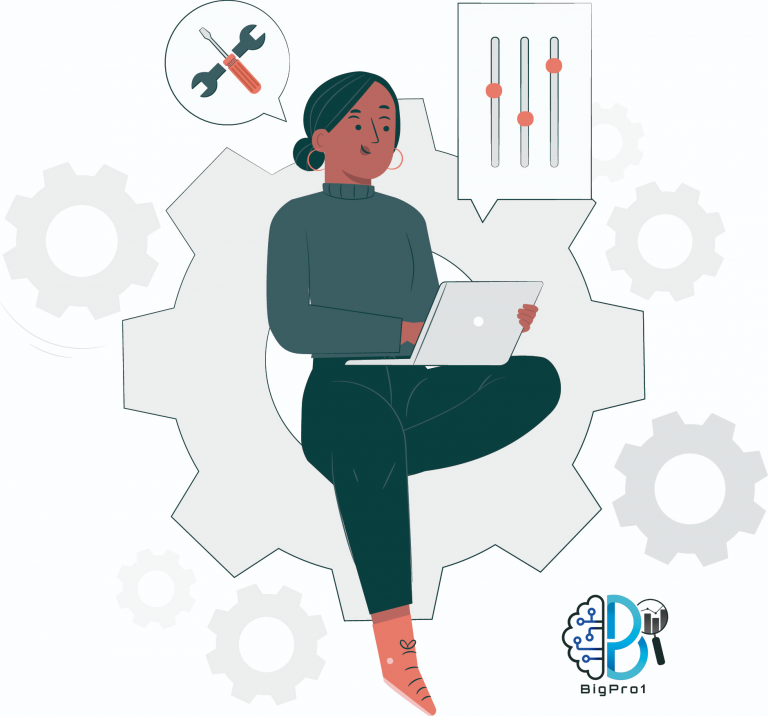Decision Support Systems (DSS) are computer software used to support decisions, judgments, and executive tasks in an organization or business. Such systems greatly assist in making the best decisions in the shortest time possible and play an important role in improving productivity and efficiency. Various types of decision support systems have been designed by experts that analyze a vast amount of data and provide comprehensive information to individuals for decision-making.
What is the purpose of a decision support system or a system supporting a system?
Decision Support System or DSS is a computer program that collects a large amount of data from various sources and, through accurate analysis, provides information beyond traditional reports and charts to managers. The sharing of knowledge that occurs through various types of decision support systems leads to more informed and data-driven decision-making.
For example, a decision support system can collect the following information:
• Collection of sales figures in a specific period and their comparison
• Prediction of sales and revenue for new products
• Examination of the consequences of various decisions
• …
The nature of different types of decision support systems
Different types of decision support systems are considered part of information applications that differ from operational programs. In information applications, data is collected from various sources to enable managers to make better decisions. In contrast, in operational programs, we see the presentation of information about business transaction details.
Why should we use different types of decision support systems?
Decision support systems play a crucial role in assisting decision-makers through high interaction. Therefore, in such systems, communication technologies, data, documents, knowledge, or modeling should be used to complete decision-making tasks. A decision support system may present information graphically and may be based on expert systems or artificial intelligence.
The use of different types of decision support systems is possible at various levels. Employees, middle managers, and senior managers use various DSS for decision-making in future processes and improving efficiency. The information used in decision support systems includes:
• Access to all information assets, including old and relational data
• Comparative numerical data
• Predicted figures based on data or new assumptions
• Alternative decision outcomes based on past experience in a specific field
Introduction to types of decision support systems
Decision support systems can be classified based on the resources used to make decisions:
Data-driven decision support systems
Data-driven systems (Data Driven DSS) are computer software that make decisions based on data available in internal databases or external databases. Typically, a data-driven DSS uses data mining techniques to detect trends and patterns and based on this, it focuses on predicting future events.
Businesses commonly use data-driven DSS systems to help make better decisions regarding inventory, sales, and other business processes. Some types of data-driven decision support systems are also used in public sectors, such as predicting criminal behavior in the future.

Model-driven decision support systems
In model-driven decision support systems (Model Driven DSS), decisions are made based on a specific decision model that has been created based on the needs of each business. Various scenarios are defined for such systems to enable planning or formulation of executive plans.
Among the types of decision support systems, model-driven systems are suitable for complex structures where decision-making is difficult or choosing between different options is not straightforward. Model-driven decision support systems are used for scheduling and analyzing previous decisions.
Communication-driven and group decision support systems
In many issues requiring decision-making, there needs to be the possibility of interaction among all team members or managers in different departments. A decision support system based on communication and teamwork uses various communication tools such as email, instant messaging, or voice chat to allow more than one person to work on a similar topic.
The goal of this type of DSS is to increase collaboration between users and the system in order to improve efficiency and effectiveness overall. Most types of communication-based decision support systems cover internal organizational processes so that meetings among colleagues are well organized and with the preparation of reports from meetings, it is possible to follow up on matters.
Knowledge-Based Decision Support Systems
In this type of decision support systems, the data that guide the system are placed in a knowledge base that is continuously updated and maintained by a knowledge management system. A knowledge-driven DSS provides users with information that is compatible with the company’s business processes and knowledge.
In these types of DSS, in addition to internal employees, external resources are also utilized to enable timely and accurate decision-making. For example, customers of a brokerage firm, with access to the latest business data and financial signals, will be able to make informed decisions for profitable gains.
Generally, among the various types of decision support systems, knowledge-driven systems are used to provide advice to managers or make the right product/service choices by customers.
Document-Based Decision Support Systems
Document-driven DSS is a type of information management system that uses documents for data retrieval. Various document-based decision support systems enable users to search for web pages or databases of interest and find specific phrases they are looking for.
Examples of documents used by a document-based DSS include laws, policies, meeting minutes, and company records. It should be noted that document-based DSSs are among the more common types of decision support systems and are used in various applications.

Advantages of using various Decision Support Systems (DSS):
- Speed: Using DSS is a quick method for decision-making. Data processing, analysis, and modeling on them make it possible to make the best choices with various Decision Support Systems.
- Automation: Making automatic decisions in many cases allows managers to focus on key issues rather than getting involved in minor matters.
- Efficiency: There is less chance of computer data being incorrect. Therefore, output models in decision support systems have more efficient output models compared to human decision-making.
- Low-cost training: Decision Support Systems help managers learn how to act in different situations.
- Cost reduction: Mistakes in decision-making create high-cost risks. However, if we make the optimal decisions in all conditions, we will see a reduction in costs.
- Increased satisfaction: Making correct and optimal decisions will lead to increased satisfaction among managers, employees, and customers.
Various applications of Decision Support Systems:
With the help of Decision Support Systems, you can perform online statistical analysis, machine learning, data preprocessing, data preparation, and more. Many large, medium, and even small organizations use DSS to advance their work and achieve their goals. This technology plays an important role in many complex issues. Various Decision Support Systems play an important role in the following cases:
- Company budgeting management
- Commerce and management
- Educational system control in universities and schools
- Weather forecasting
- Financial markets
- Air traffic
- Health and medicine
- Agriculture
- Supply chain
- And more…
To choose a Decision Support System suitable for your business, contact experienced consultants at BigPro1 and receive the necessary guidance.
Closing remarks:
Today, various Decision Support Systems are designed for different applications and are used. The advancement of computer technologies has made it possible to manage data and process it for decision-making. Providing accurate and targeted reports by DSS enables managers to make quick and optimal decisions during business negotiations or planning.
Sources: Parts of the content of this article have been taken from the websites itrelease, techtarget, botpenguin.




